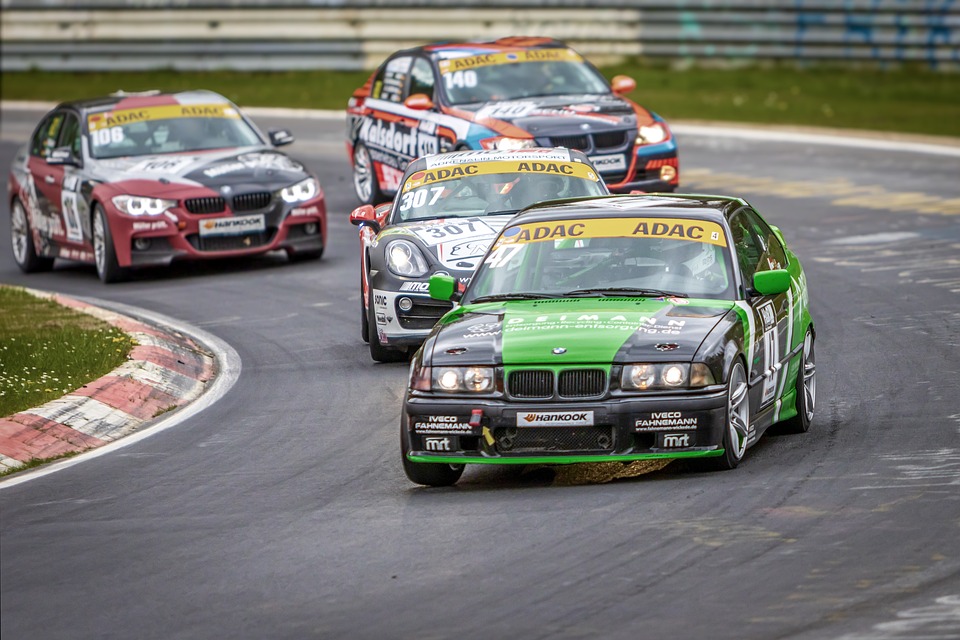
The Psychology of Motorsport: The Mental Game of Racing
Racing is not just about driving fast cars around a track – it is also a mental game. The psychology of motorsport is a complex and fascinating subject that can have a significant impact on a driver’s performance. Understanding the mental aspects of racing can help drivers improve their skills, cope with pressure, and ultimately achieve their full potential on track.
The Importance of Mental Preparation
Motorsport is a high-pressure environment where split-second decisions can mean the difference between winning and losing. Mental preparation is crucial for drivers to perform at their best under such intense conditions. Racing drivers need to be mentally focused, calm, and confident in order to make the right decisions on the track.
One key aspect of mental preparation is visualization. Many successful racing drivers use visualization techniques to mentally rehearse their races before they even get behind the wheel. By visualizing the track, their moves, and potential challenges, drivers can develop a mental roadmap of what to expect during the race. This can help them feel more prepared and confident when they actually hit the track.
The Role of Confidence
Confidence is another crucial factor in the psychology of motorsport. A confident driver is more likely to take risks, push their limits, and ultimately perform better on track. However, confidence is also a delicate balance – too much confidence can lead to reckless driving, while too little can result in hesitation and mistakes.
Building confidence as a racing driver requires a combination of mental toughness, self-belief, and experience. Drivers need to trust their skills, their team, and their equipment in order to have the confidence to push themselves to the limit. Furthermore, positive self-talk and a strong support system can also help boost a driver’s confidence and keep them focused on their goals.
Coping with Pressure
Pressure is a constant companion for racing drivers, whether it be the pressure to perform well, meet expectations, or secure a sponsorship deal. Learning to cope with pressure is a critical skill for drivers to develop in order to succeed in motorsport. Pressure can manifest in many forms, including nerves, self-doubt, and anxiety, all of which can affect a driver’s performance on track.
One effective way to cope with pressure is through mental strategies such as deep breathing, visualization, and positive self-talk. These techniques can help calm the mind, focus attention, and boost confidence in high-pressure situations. Additionally, having a pre-race routine, staying present in the moment, and setting realistic goals can also help drivers manage pressure and stay focused on the task at hand.
The Mental Game of Competition
Competition is at the heart of motorsport, and the mental game of racing can have a significant impact on a driver’s performance in a competitive environment. Racing drivers need to strike a balance between being aggressive and being strategic in order to succeed on track. They need to anticipate their opponents’ moves, respond quickly to changing conditions, and make split-second decisions under pressure.
Furthermore, the mental aspect of competition in motorsport extends beyond just the drivers themselves. Pit crews, engineers, and team managers all play a crucial role in a driver’s success on track. Communication, trust, and teamwork are essential components of a winning racing team, and all members need to be mentally prepared and focused in order to perform at their best.
Mental Toughness and Resilience
One of the key traits of successful racing drivers is mental toughness and resilience. Motorsport is a demanding and unforgiving sport that requires drivers to cope with setbacks, failures, and disappointments. Developing mental toughness and resilience can help drivers bounce back from setbacks, stay focused on their goals, and ultimately achieve success in the sport.
Resilient drivers are able to learn from their failures, adapt to changing conditions, and stay positive in the face of adversity. They are able to push through challenges, setbacks, and doubts to reach their full potential on track. Developing mental toughness and resilience is a lifelong process that requires dedication, self-awareness, and a growth mindset.
Conclusion
The psychology of motorsport is a complex and fascinating subject that can have a significant impact on a driver’s performance on track. Understanding the mental aspects of racing, such as mental preparation, confidence, coping with pressure, competition, and mental toughness, can help drivers improve their skills, stay focused, and ultimately achieve success in the sport.
By developing mental strategies, building confidence, and cultivating resilience, racing drivers can perform at their best under pressure, make split-second decisions on track, and ultimately reach their full potential as competitors. The mental game of racing is just as important as the physical skills, and mastering the psychology of motorsport can give drivers a competitive edge on track.

